Ekaterina Levental - Medtner: Wandrers Nachtlied, Complete Songs, Vol. 4 (2023) Hi-Res
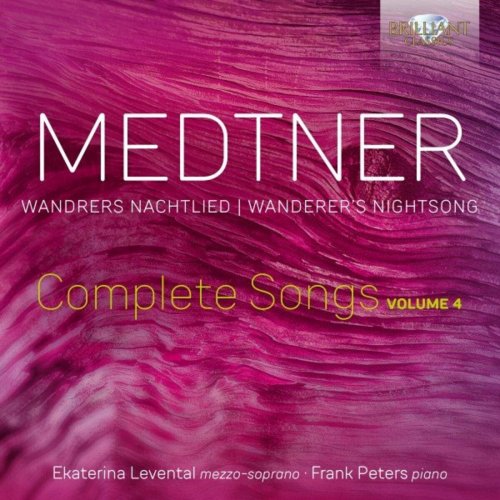
Artist: Ekaterina Levental, Frank Peters
Title: Medtner: Wandrers Nachtlied, Complete Songs, Vol. 4
Year Of Release: 2023
Label: Brilliant Classics
Genre: Classical
Quality: FLAC 16/24 Bit (192 KHz / tracks+booklet)
Total Time: 62:55 min
Total Size: 191 / 1,9 GB
WebSite: Album Preview
Title: Medtner: Wandrers Nachtlied, Complete Songs, Vol. 4
Year Of Release: 2023
Label: Brilliant Classics
Genre: Classical
Quality: FLAC 16/24 Bit (192 KHz / tracks+booklet)
Total Time: 62:55 min
Total Size: 191 / 1,9 GB
WebSite: Album Preview
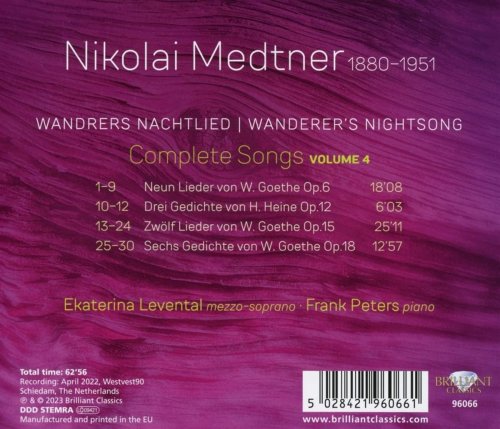
Tracklist:
01. 9 Lieder von W. Goethe, Op. 6: I. Wandrer's Nachtlied II - Wanderer's Nightsong II
02. 9 Lieder von W. Goethe, Op. 6: II. Mailied - Spring Song
03. 9 Lieder von W. Goethe, Op. 6: III. Elfenliedchen - Song of the Elves
04. 9 Lieder von W. Goethe, Op. 6: IV. Im Vorübergehn - I Roamed the Meadows
05. 9 Lieder von W. Goethe, Op. 6: V. Liebliches Kind (Aus 'Claudine von Villa-Bella') - Loveliest Lass
06. 9 Lieder von W. Goethe, Op. 6: VI. Inneres Wühlen (Aus 'Erwin und Elmire') - Conscience
07. 9 Lieder von W. Goethe, Op. 6: VII. Sieh mich, Heil'ger (Aus 'Erwin und Elmire') - Hear Me, Lord
08. 9 Lieder von W. Goethe, Op. 6: VIII. Erster Verlust - First Love
09. 9 Lieder von W. Goethe, Op. 6: IX. Gefunden (Epithalamion) - Rooted Firm
10. 3 Gedichte von Heinrich Heine, Op. 12: I. Lieb Liebchen - The Carpenter
11. 3 Gedichte von Heinrich Heine, Op. 12: II. Lyrisches Intermezzo (Fichtenbaum) - Lyrical Intermezzo
12. 3 Gedichte von Heinrich Heine, Op. 12: III. Bergstimme - The Voice of the Mountain
13. 12 Lieder von W. Goethe, Op. 15: I. Wandrer's Nachtlied I - Wanderer's Nightsong I
14. 12 Lieder von W. Goethe, Op. 15: II. An die Türen will ich schleichen (Aus Wilhelm Meister) - The Beggar
15. 12 Lieder von W. Goethe, Op. 15: III. Selbstbetrug - Self-Deceit
16. 12 Lieder von W. Goethe, Op. 15: IV. Sie liebt mich! (Aus 'Erwin und Elmire') - She Loves Me!
17. 12 Lieder von W. Goethe, Op. 15: V. So tanzet (Aus 'Lila') - So dance Ye
18. 12 Lieder von W. Goethe, Op. 15: VI. Vor Gericht (Ballade) - Before the Court
19. 12 Lieder von W. Goethe, Op. 15: VII. Meeresstille - Sea Calm
20. 12 Lieder von W. Goethe, Op. 15: VIII. Glückliche Fahrt - Happy Voyage
21. 12 Lieder von W. Goethe, Op. 15: IX. Nähe des Geliebten - Near the Beloved
22. 12 Lieder von W. Goethe, Op. 15: X. Der untreue Knabe (Ballade) - The Faithless Lad
23. 12 Lieder von W. Goethe, Op. 15: XI. Gleich und Gleich - Like to Like
24. 12 Lieder von W. Goethe, Op. 15: XII. Geistergruß - The Spirit's Greeting
25. 6 Gedichte von W. Goethe, Op. 18: I. Die Spröde - The Flirt
26. 6 Gedichte von W. Goethe, Op. 18: II. Die Bekehrte - Conquered
27. 6 Gedichte von W. Goethe, Op. 18: III. Einsamkeit - Solitude
28. 6 Gedichte von W. Goethe, Op. 18: IV. Mignon - Mignon
29. 6 Gedichte von W. Goethe, Op. 18: V. Das Veilchen (Ballade) - The Violet
30. 6 Gedichte von W. Goethe, Op. 18: VI. Jägers Abendlied - Huntrer's Even-Song
New recordings of Goethe and Heine settings by a master Russian song-writer, by performers thoroughly versed in the composer’s complex harmony and heritage.
While Nikolai Medtner only emigrated from Moscow to Berlin in 1921, eventually settling in London, the Russian composer traced a deep connection to German culture through the ancestry of his mother. He was familiar with the German language and culture from his childhood, and made his first visit to Berlin in the winter of 1904-5, then returned for most of 1907 and the summer of 1909.
It can be no coincidence that these original-language settings of two of Germany’s greatest poets date from this period in Medtner’s life. In his mid-20s at this point, Medtner had become internationally known as a pianist of formidable technical and interpretative gifts, but he continued to compose and to teach, taking up a post at the Moscow Conservatoire in 1909.
While Medtner’s pianism often lends the quicker songs a scintillating brilliance, such as the Elfenliedchen which is third in the Opus 6 collection of Goethe’s songs, the overall mood of the collection is imbued with the feelings of love and longing which are key-signatures of Romanticism (German or Russian). Medtner was always drawn towards musical contemplation of life’s deeper themes, and he accordingly sets both poets at their most philosophical and visionary, in the Wandrers Nachtlied of Goethe and the Bergstimme of Heine.
On this album, recorded in 2022, Ekaterina Levental and Frank Peters couple the Opp 6, 15 and 18 settings of Goethe with the three Op 12 settings of Heine: a unique but natural pairing on record. The booklet includes both original texts and English translations.
While Nikolai Medtner only emigrated from Moscow to Berlin in 1921, eventually settling in London, the Russian composer traced a deep connection to German culture through the ancestry of his mother. He was familiar with the German language and culture from his childhood, and made his first visit to Berlin in the winter of 1904-5, then returned for most of 1907 and the summer of 1909.
It can be no coincidence that these original-language settings of two of Germany’s greatest poets date from this period in Medtner’s life. In his mid-20s at this point, Medtner had become internationally known as a pianist of formidable technical and interpretative gifts, but he continued to compose and to teach, taking up a post at the Moscow Conservatoire in 1909.
While Medtner’s pianism often lends the quicker songs a scintillating brilliance, such as the Elfenliedchen which is third in the Opus 6 collection of Goethe’s songs, the overall mood of the collection is imbued with the feelings of love and longing which are key-signatures of Romanticism (German or Russian). Medtner was always drawn towards musical contemplation of life’s deeper themes, and he accordingly sets both poets at their most philosophical and visionary, in the Wandrers Nachtlied of Goethe and the Bergstimme of Heine.
On this album, recorded in 2022, Ekaterina Levental and Frank Peters couple the Opp 6, 15 and 18 settings of Goethe with the three Op 12 settings of Heine: a unique but natural pairing on record. The booklet includes both original texts and English translations.
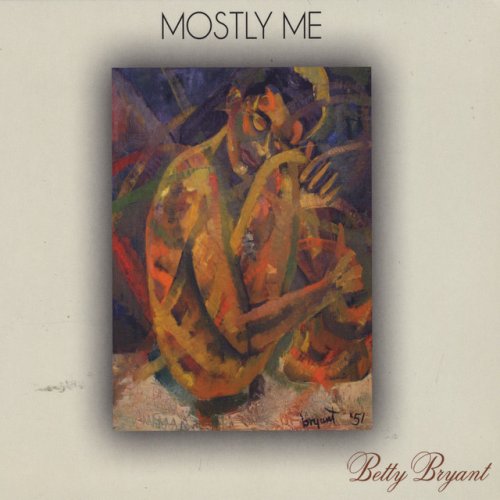

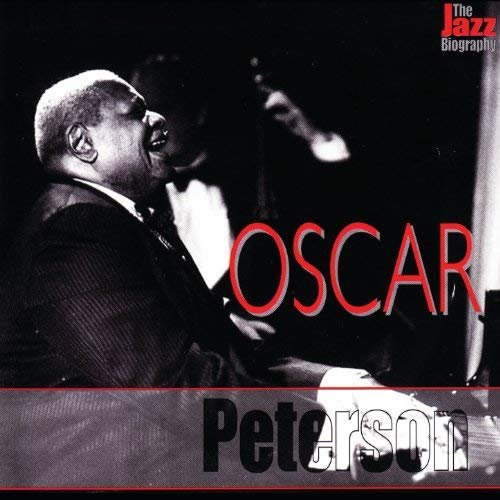

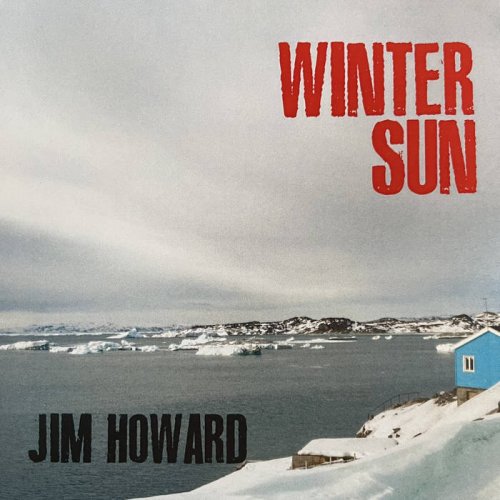
![Age, Gustav Lundgren, Adrien Sanchez, Édouard Pennes, Jean Dousteyssier, Guilhem Flouzat - The New AGE (2026) [Hi-Res] Age, Gustav Lundgren, Adrien Sanchez, Édouard Pennes, Jean Dousteyssier, Guilhem Flouzat - The New AGE (2026) [Hi-Res]](https://www.dibpic.com/uploads/posts/2026-01/1769257924_rxaptzfdcyngc_600.jpg)
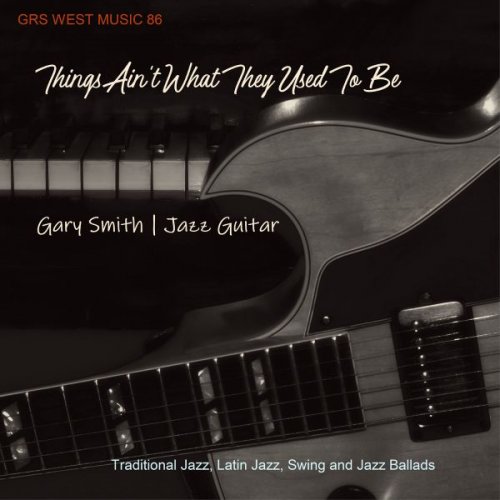
![The Mood Mosaic - The Filthy Groove Score (TV Themes Done Gritty) (2026) [Hi-Res] The Mood Mosaic - The Filthy Groove Score (TV Themes Done Gritty) (2026) [Hi-Res]](https://www.dibpic.com/uploads/posts/2026-01/1769144341_ntyxys3uknii0_600.jpg)
![NDR Bigband - Talking to Béla (2026) [Hi-Res] NDR Bigband - Talking to Béla (2026) [Hi-Res]](https://www.dibpic.com/uploads/posts/2026-01/1769085002_u7lizm4pfqjcu_600.jpg)